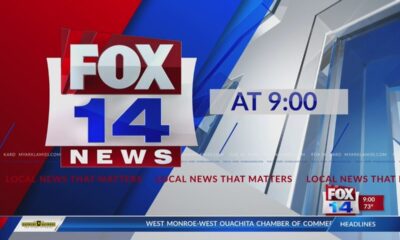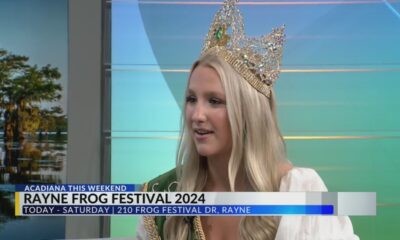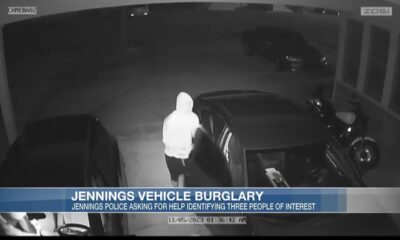Louisiana Illuminator
Republican National Committee courts election conspiracy theorists to help watch polls • Louisiana Illuminator
Republican National Committee courts election conspiracy theorists to help watch polls
by Zachary Roth, Louisiana Illuminator
April 9, 2024
As the Republican National Committee ramps up plans to monitor the polls for illegal voting this fall, the national party is increasingly working with a loose network of anti-fraud extremists who have been found to routinely spread election lies.
The extremists also have close ties to the prominent far-right conspiracy theorists who tried to overturn the 2020 results of the presidential election.
The director of the Republican National Committee's department for “election integrity” — tighter voting rules that prioritize anti-fraud measures over access — spoke at an April 4 online meeting hosted by two Florida activists who are close allies of the pillow entrepreneur and leading election-conspiracy theorist Mike Lindell.
States Newsroom attended the meeting, and video of it was posted online by the organizers.
It was just one of several recent episodes in which top RNC staff have reached out to large-scale purveyors of election falsehoods or right-wing extremists as the party recruits volunteers to guard the vote.
Election officials and election administration experts have repeatedly said there is no evidence of large-scale fraud or illegal voting in the 2020 election. Hundreds of lawsuits intended to uncover significant fraud have found very little.
The GOP's growing outreach to these groups serves as the latest warning about the threat to this fall's vote that could still be posed by the “big lie” that the 2020 election was stolen, election experts say.
“It's one thing when fringe conspiracy theorists spread lies about elections,” said David Becker, an election administration expert who founded and runs the Center for Election Innovation and Research. “But it's particularly disappointing to see a major political party give a platform to extremists whose testimony and statements have been found time and again to be false, and non-credible by the courts.”
“On the issue of democracy, today's Republican Party is more irresponsible and more dangerous than it was in 2020,” said Marc Elias, a top Democratic election lawyer, in a statement that blasted the GOP's effort to “court and nurture a network of right-wing election vigilantes.”
A spokesperson for the RNC did not respond to States Newsroom's request for comment.
GET THE MORNING HEADLINES DELIVERED TO YOUR INBOX
Recruiting volunteer voting monitors
At the April 4 meeting, RNC election integrity director Christina Norton laid out the party's plan to closely monitor the voting process, especially in swing states. Norton explained how the volunteers in attendance, eager to root out voter fraud, could get involved.
“We don't see this program as being siloed or separate,” said Norton, a former deputy director of the Republican National Lawyers Association and a veteran of Florida GOP politics. “This is a full partnership with the grassroots and the local activists on the ground.”
Soon after, Seth Keshel, a retired U.S. Army intelligence officer, began his own presentation, stressing that Republicans would face a challenge to overcome what he said is mass Democratic fraud in states across the country.
Based on his own “quick count” done before the call, Keshel said, five key counties in North Carolina saw a total of 150,000 fraudulent votes in the 2020 election.
Disinformation is a threat to the 2024 elections. Here's how you can protect yourself and others.
There's also “big-time abuse” in Madison, Wisconsin, said Keshel, who has made frequent presentations across the country, using comparisons of vote totals in past elections to falsely claim that the 2020 election was stolen.
Milwaukee, too, has a “big-time ballot harvesting scene,” he said.
As for Arizona, Keshel declared, the state's two largest counties are “where the cheating is going on,” though Democrats are also “stuffing margins in the event of a close race” in other parts of the state.
“The corruption of elections is based on the corruption of voter rolls, and everything springs forward from that,” Keshel said.
Neither Norton nor anyone else on the call, which organizers said reached its Zoom capacity of 500 attendees, with around 1000 more watching a livestream, objected to Keshel's claims, for which he provided no evidence.
Jessica Marsden, a counsel at Protect Democracy, a democracy advocacy group, said it's become common for anti-fraud activists to style themselves as data experts, and to use scraps of information to build complex conspiracy theories.
“There's this common thread of almost pseudo-science,” said Marsden. “These fraud theories have been totally debunked, but the aura of expertise that they bring to the effort seems to be seductive to some of these audiences.”
Claims about immigrants
To promote the April 4 meeting in advance, its two hosts, Steve Stern and Raj Doraisamy, used what have been found to be lies about the threat of voting by undocumented immigrants.
In a March 26 appearance on “War Room,” the popular podcast hosted by Steve Bannon, who served as a Trump White House adviser, Stern promised: “We have so many illegal aliens in this country. They want to vote. We gotta stop them. We're gonna tell you on April 4th how to do this.”
Bannon urged listeners to join the call, telling Stern: “You're the best.”
A mass April 3 email sent by Doraisamy included a screenshot of a viral post on X charging that “8 million illegal aliens have invaded America under Biden,” and falsely suggesting that they're being deliberately allowed in so that they can illegally vote for Democrats.
Thanks to this scheme, “the risk of Trump losing is now higher than ever,” Doraisamy wrote, urging readers to attend the meeting.
In fact, the claim in the post, which was also promoted by X owner Elon Musk to his over 180 million followers, is riddled with flaws, as the progressive journalist Judd Legum has shown.
Politifact has rated the claim that 8 million undocumented people have entered the country during the Biden presidency “mostly false.”
RNC courts fringe
In addition to filing a slew of lawsuits aimed at restricting voting, the RNC is planning a ground operation of volunteers to aggressively monitor the voting process.
A Trump campaign spokesperson promised in a TV appearance last month that there would be “soldiers — poll watchers, on the ground, who are making sure that there are no irregularities and fraud like we saw in the last election cycle.”
Meanwhile, a leadership change has increased Trump's control over the national party.
In late February, Ronna McDaniel, whom Trump backers had criticized as out of touch with the grassroots, stepped down as chair. She was replaced by Lara Trump, Trump's daughter-in-law, and Michael Whatley, the former chair of the North Carolina GOP, who has emphasized the election integrity issue.
In an April 7 interview, Whatley avoided answering whether the 2020 election had been stolen.
Speaking on Fox News in March, Lara Trump pledged that the election integrity department would receive “massive resources.”
To boost Trump, GOP attorneys general charge into battle over state election rules
In recent weeks, the RNC has been at pains to show conservative activists — including those who have played key roles in spreading election lies — that it needs their help.
Gates McGavick, a senior adviser to Whatley and the RNC's top spokesperson on election integrity issues, joined Stern's podcast last month.
“We want to have open communication with the grassroots. We want to be providing as many resources as we possibly can to the grassroots,” McGavick told Stern. “Our election integrity department is a huge part of how we do that.”
And Christina Bobb, a former Trump lawyer who played a role in the Trump campaign's “fake elector” scheme and was recently hired as a top RNC attorney, spoke with the far-right podcaster Breanna Morello last month.
“The most important aspect of election integrity from the RNC is empowering the grassroots to do what the grassroots does,” Bobb told Morello.
Bobb also joined a conference call last month with several Trump-allied groups that have spread lies about 2020, the Guardian reported.
The RNC appears not to have publicized any of these meetings, including the April 4 event with Norton, on its social media accounts or its website.
But for activists like Stern, who were used to being kept at arm's length by the national party, the RNC's new approach is a godsend.
“I think the RNC is the most important thing here,” Stern told Bannon as he previewed the April 4 meeting. “We've never been able to do this with Ronna McDaniel. But they're coming to us now because they realize the grassroots are the important people in this country, that are going to save this country.”
Ties to conspiracy theorists
The April 4 meeting's two organizers, Stern and Doraisamy, both have close ties to Lindell, as do several of the other speakers, who have been key spreaders of baseless claims about mass voter fraud.
Lindell spoke at a March 11 event Stern organized, video of which was posted online, to raise money and recruit conservative activists, held at Trump International Golf Club. “There is no more important patriot in this United States than Mike Lindell,” Stern declared as he introduced the conspiracy theorist.
Doraisamy was outside the U.S. Capitol on Jan. 6, 2021, the Sarasota Herald-Tribune has reported, and went on to found a group, Defend Florida, that went door to door to gather thousands of “affidavits” from Floridians in an effort to show that the state's 2020 election was corrupted by massive fraud. Election officials have said there's no evidence for that.
At a 2022 event celebrating the signing into law of a controversial state measure creating an election crimes unit, which Defend Florida said was spurred by their work, Doraisamy thanked Lindell for his help with transportation for the door-to-door effort.
“We could not have been able to do that without your help,” Doraisamy said.
A 2021 Defend Florida rally included numerous Proud Boys, the self-described “western chauvinist” group that played a key role in the events of Jan. 6, the Sarasota Herald-Tribune reported.
Grassroots activists spread fraud claims
Another speaker on the April 4 call, Linda Szynkowicz, the Connecticut-based founder of FightVoterFraud.org, claimed recently on Stern's podcast that her team has gathered evidence of election violations committed by over 40,000 people across the country. “Most of them are class D felonies,” she added.
In Connecticut alone, Szynkowicz said, her group has found around 11,000 people that potentially can be proven to have violated election laws. She provided no evidence for the claim.
“I always have to say ‘potentially' because I'm not law enforcement,” Szynkowicz added. “But we know we got ‘em.”
AI disinformation, threats to poll workers top U.S. Senate panel list of election worries
Also given a speaking spot at the April 4 meeting was Linda Rantz, who runs the Missouri chapter of Cause of America, a group that Lindell founded with the goal of getting rid of voting machines.
Another speaker, Jay Valentine, used initial funding from Lindell, the Texas Tribune has reported, to create voter data monitoring software.
According to documents obtained by the progressive group American Oversight, Valentine has worked closely with Trump lawyer Sidney Powell, a key figure in the effort to overturn the 2020 election, to convince lawmakers in Wisconsin and other states to use his “fractal programming technology” to uncover mass fraud.
“Voter fraud is a nationwide crime perpetrated locally, mostly by Democrats,” Valentine has written separately, promoting the idea of a national election fraud database. “We cannot fight industrial, sovereign, large-scale, election fraud with reports, press releases, and webinars.”
Yet another April 4 speaker, Marly Hornik, founded New York Citizens Audit, which she has said conducted an “open-source audit” of the state's voter registration database.
“We have found millions and millions of registrations that are clear violations of New York state election law,” Hornik said last year on The Lindell Report, a TV show and podcast started by Lindell. “The database is being manipulated. We have hard evidence of that.”
Last year, New York Citizens Audit received a cease and desist letter from the state attorney general, charging that the group's volunteers “confronted voters across the state at their homes, falsely claimed to be Board of Elections officials, and falsely accused voters of committing felony voter fraud.”
To those working for a fair and peaceful election this year, it all adds up to a major concern.
“Lying about election fraud is dangerous, plain and simple,” said Marsden of Protect Democracy, noting the Jan. 6 insurrection, as well as threats leveled against election workers. “Having a major political party sign on to those lies and lend them credibility is reckless and heightens the risk of violence affecting voters and the election.”
SUPPORT NEWS YOU TRUST.
Correction: This report has been updated to include the correct date in all instances of an April 4 online meeting that included an RNC official.
Louisiana Illuminator is part of States Newsroom, a nonprofit news network supported by grants and a coalition of donors as a 501c(3) public charity. Louisiana Illuminator maintains editorial independence. Contact Editor Greg LaRose for questions: info@lailluminator.com. Follow Louisiana Illuminator on Facebook and Twitter.
The post Republican National Committee courts election conspiracy theorists to help watch polls • Louisiana Illuminator appeared first on lailluminator.com
Louisiana Illuminator
Gambling on a constitutional convention • Louisiana Illuminator
by Robert Collins, Louisiana Illuminator
May 16, 2024
Louisiana Gov. Jeff Landry recently requested that the Legislature call a constitutional convention. He says the current constitution is too restrictive, and forbids cuts to most agencies, resulting in most cuts falling on higher education and healthcare. He also says that most of the amendments in the constitution should be statutes that can be changed by the state Legislature.
The enabling legislation that made it out of the House proposes to hold a two-week convention starting Aug.1, with convention committees meeting prior to the convention to receive public comments.
The current Louisiana constitution is a flawed and excessively-amended document and should be rewritten at some point. However, the legislation being sent over to the Senate for debate is setting up a rushed, high-risk process that makes it difficult for ordinary citizens to have their voices heard. It would increase the influence of the governor by giving him more discretionary power over how state money is spent, but it's unclear how it would help ordinary citizens.
The first problem with current convention legislation is the lack of public input. The constitutional convention of 1973 had a long series of open meetings that stretched over an entire year. Meetings were not only held in Baton Rouge. Committee members traveled to all parts of the state to make sure that any citizen who wanted to participate in a public meeting received the opportunity.
The 1973 convention was composed primarily of elected delegates. Some were state lawmakers, some were local officeholders, but many were simply private citizens who chose to run for a delegate seat. The current legislation calls for a convention of strictly state legislators and gubernatorial appointees. It's not really a recipe for broad public participation.
This is especially problematic for the urban areas of the state. The main protection that a city such as New Orleans, a heavily Democratic city in a Republican state, has is a home rule charter. The central structure of city government is shielded from state interference by the home rule charter rights written into the constitution. A hostile group of delegates could weaken the home rule charter provisions in the document. They could choose to change the form of government of the city altogether, taking away the power of the mayor and City Council to appoint members of city boards and commissions, such as the City Planning Commission or Sewerage & Water Board, and give those powers to the state.
The governor's legislative floor leaders have responded to criticism that the time period allocated to write a new constitution is too short to allow broad public participation by describing the new constitution as a refresh or a streamlining. They argue that their goal is not to write a new constitution from scratch, but simply to remove all of the provisions that should be legislative statutes. Their stated plan is a “limited convention.”
There is no such thing as a limited convention. There is nothing in Louisiana law that would stop delegates from immediately expanding the scope of the convention once they go into session. History indicates that governors and legislative floor leaders usually lose control of these conventions.
Veteran political journalist Jeremy Alford, in his book, “The Last Constitution,” said that the last time the state wrote a new constitution, in 1973, newly-elected Governor Edwin Edwards ran on a very specific set of constitutional reforms. Since Edwards was a popular and powerful governor, everyone expected the delegates to follow his charge. Alford said: “The delegates, however, ignored that charge and penned a plan for drafting their own constitution on the back of a cocktail napkin from Pastime Lounge, which in turn became one of the first official documents entered into the convention record.”
Given the high stakes of getting this convention wrong, it is time for the Senate to slow the process down, stretch it out, schedule public meetings across the state, and bring more private citizens into the process.
Ultimately, the voters will have the final say because a new constitution must be approved by a simple majority in a statewide vote. It would be preferable to bring broad public participation at the start of the process rather than waiting until the end. Rushing the process and excluding most of the voters runs the risk of dealing the state a losing hand in the end.
This article first appeared on Verite News and is republished here under a Creative Commons license.
Louisiana Illuminator is part of States Newsroom, a nonprofit news network supported by grants and a coalition of donors as a 501c(3) public charity. Louisiana Illuminator maintains editorial independence. Contact Editor Greg LaRose for questions: info@lailluminator.com. Follow Louisiana Illuminator on Facebook and Twitter.
The post Gambling on a constitutional convention • Louisiana Illuminator appeared first on lailluminator.com
Louisiana Illuminator
More students could have access to tutoring vouchers, but few expected to use them • Louisiana Illuminator
by Allison Allsop, Louisiana Illuminator
May 16, 2024
Louisiana lawmakers advanced a bill Wednesday that would expand a voucher program for students not meeting state math and reading standards, and state officials are hoping demand for them will increase.
House Bill 244, authored by Rep. Jason Hughes, D-New Orleans, would increase the amount of voucher money families receive, expand the grades from which students can access the program and add numeracy tutoring to the program. The bill unanimously passed out of the Senate Education Committee.
The vouchers are currently worth $1,000. Hughes' bill would increase the amount to $1,500.
The Legislative Fiscal Office estimates the expanded program will cost the state nearly $4.5 million starting in 2025. The program has previously been paid for with federal Elementary and Secondary School Relief (ESSR) funds.
The last round of ESSR funds expire in September, so the state must use the money by then or lose any remaining amount.
The Louisiana Department of Education originally invested $40 million of ESSR funds in the tutoring program, but the money was steered toward other needs once it became clear students would use only around $2 million.
Under the Hughes bill, students in kindergarten through 12th grade could use vouchers for either math or literacy tutoring. Currently, the vouchers are only available to kindergarten to fifth-grade students.
In order to be eligible, students must score below their grade level or fall short of mastery in math or English on state assessment tests and be considered at risk for learning difficulties. Priority is given to low-income families.
The vouchers can only be used for tutoring services the Louisiana Department of Education has approved. The state does not anticipate Hughes' proposal to increase the percentage of students who will use the program. It's estimated more than 300,000 students will be eligible but fewer than 3,000 students are expected to obtain tutoring.
According to a NOLA.com report, education advocates say the program is not well-known among teachers or parents. The availability of tutors has been sparse, and critics say unnecessary burdens such as the application process make it difficult to take part. As a result, only 0.8% of eligible students have been reached since the services were first offered in 2021.
Hughes' bill would also change the name of the program to the Steve Carter Education Program. The former state representative, who died in 2021, chaired the House Education Committee from 2011 to 2025.
The proposal now moves to the Senate Finance Committee.
SUPPORT NEWS YOU TRUST.
Also on Wednesday, the Senate Education Committee passed a bill that would create a screening for numeracy, or math basics, in kindergarten through third grade.
House Bill 267, authored by Rep. Kim Carver, R-Mandeville, mimics the system already in place for literacy screenings. It would require students to be tested three times a year and for parents to be notified if their children do not meet grade-level expectations.
Carver's bill would also require numeracy intervention and support for students testing below grade level. They would also be given an improvement plan created in concert with their parents, teachers and other necessary school personnel.
The legislation carries a $2.5 million cost for the first year and $3 million every year after. The expense is associated with assigning new vendors to performing the screenings three times a year.
The proposal passed committee unanimously and now moves to the Senate Finance Committee. The legislation would be implemented in the 2026-27 school year if approved.
This story's headline and lede were updated for clarity.
Louisiana Illuminator is part of States Newsroom, a nonprofit news network supported by grants and a coalition of donors as a 501c(3) public charity. Louisiana Illuminator maintains editorial independence. Contact Editor Greg LaRose for questions: info@lailluminator.com. Follow Louisiana Illuminator on Facebook and Twitter.
The post More students could have access to tutoring vouchers, but few expected to use them • Louisiana Illuminator appeared first on lailluminator.com
Louisiana Illuminator
Ranked-choice voting close to being illegal in Louisiana • Louisiana Illuminator
by Wesley Muller, Louisiana Illuminator
May 15, 2024
Louisiana House lawmakers approved a bill Wednesday to outlaw ranked-choice voting, a method of elections they claim is too susceptible to fraud even though thousands of military members have used it for decades.
Senate Bill 101, sponsored by Sen. Blake Miguez, R-New Iberia, passed the House in a 74-22 vote and will return to the Senate for concurrence before heading to Gov. Jeff Landry, who is expected to sign it into law.
The vote fell mostly along party lines with every Republican voting in favor of the proposal and most Democrats voting against it except for Reps. Roy Daryl Adams of Jackson, Marcus Bryant of New Iberia, Robby Carter of Amite and Steven Jackson of Shreveport.
Miguez's bill prohibits local governments from holding ranked-choice elections, with an exception for out-of-state military members who have used it in Louisiana elections for decades.
Ranked-choice voting, also called “instant-runoff” voting, allows voters to list candidates in order of preference rather than select just one. It has grown increasingly popular across the country for its ability to temper extreme partisanship and give moderates and third-party candidates a better chance in elections.
When ballots are tallied on Election Day, the race is over if any candidate nets more than 50% of the first-place votes that are cast. If no candidate gets a majority in the first round, then the candidate with the fewest votes is eliminated. If a voter's first choice is eliminated, rather than his vote being wasted, it is applied to his second favorite candidate. The process continues with the lowest ranking candidates being tossed out until one candidate gets more than half of the votes.
During committee hearings on the bill, Miguez falsely claimed ranked-choice voting “guarantees that ballots are thrown in the trash.” It echoes national lobby groups that have blamed ranked-choice voting for helping defeat their preferred candidates and are now trying to get states to ban it.
Miguez's arguments against ranked-choice voting lean on misinformation
Military service members stationed out of state or overseas have used ranked choice to vote in Louisiana elections with no issues since the 1990s. There has never been evidence that their ballots have been disposed of without being counted as Miguez claimed.
Rep. Beau Beaullieu, R-New Iberia, presented the bill to the House floor Wednesday on behalf of Miguez, claiming ranked choice disenfranchises voters. He was unable to offer specifics when House Democrats pressed him on the claim and asked why, if the claim is true, has it never disenfranchised Louisiana's military voters.
Miguez's bill is part of Republican Secretary of State Nancy Landry's legislative agenda. Landry has argued ranked-choice voting can sometimes be complex and confusing, which is believed to have been the case in some elections.
An analysis of a 2004 ranked-choice election in San Francisco found that it might have led to lower engagement among African Americans, Latinos, less educated voters and those whose first language was not English, according to the Alaska Policy Forum.
However, other states and municipalities report success with ranked choice. Polling after the 2021 election in Utah found 86% of voters liked the system, and 81% said it was easy or somewhat easy to use, according to the Salt Lake Tribune.
Ranked-choice voting is used in more than 50 cities across 14 states. Colorado, Nevada and Oregon are on track to consider adopting it this year for statewide elections. It is even credited with helping Republicans break a decade-long losing streak in Virginia with the 2021 election of Gov. Glen Youngkin.
Like Miguez's bill, legislation in four other southern states seeking to ban ranked-choice voting includes exceptions for overseas military voters.
GET THE MORNING HEADLINES DELIVERED TO YOUR INBOX
Louisiana Illuminator is part of States Newsroom, a nonprofit news network supported by grants and a coalition of donors as a 501c(3) public charity. Louisiana Illuminator maintains editorial independence. Contact Editor Greg LaRose for questions: info@lailluminator.com. Follow Louisiana Illuminator on Facebook and Twitter.
The post Ranked-choice voting close to being illegal in Louisiana • Louisiana Illuminator appeared first on lailluminator.com
-
The Center Square7 days ago
Report gives New Orleans improved marks for action on energy efficiency | Louisiana
-
Louisiana News7 days ago
Coast Guard medevacs 62-year-old man 165 miles off Port Fourchon, La.
-
Podcasts7 days ago
Carl Frode Tiller: The Writer’s Role in Society | Louisiana Channel
-
The Center Square6 days ago
Louisiana’s Murrill asks U.S. Supreme Court for a stay in redistricting case | Louisiana
-
Louisiana News7 days ago
Frog Festival Queen breaks down itinerary for 2024 Rayne Frog Festival
-
American Press6 days ago
Courtney James Doty – American Press
-
American Press6 days ago
Gerald Dennis Hansen – American Press
-
Local News Video6 days ago
Officers asking for public’s help in Jennings car burglary






































